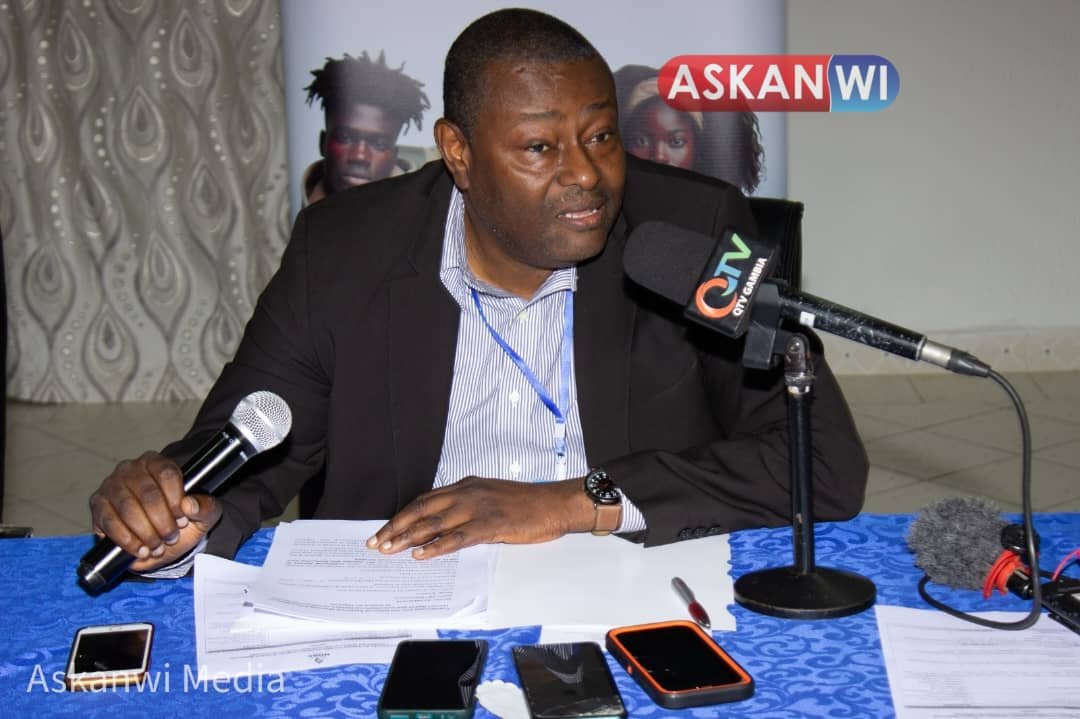NHRC Engages Parliamentarians on Strengthening Protection for Migrants
NHRC Chair Joof (c) Askanwi Media
By Haddy Ceesay
The Gambia’s National Human Rights Commission (NHRC) engaged National Assembly members from the Human Rights and Constitutional Matters Committee on enhancing access to justice for migrants on 20th September 2024 at the Senegambia Beach Hotel.
The engagement focused on issues affecting migrants and the misconceptions around migration. It provided a platform for Parliamentarians and the Commission to identify means of strengthening the protective environment for migrants while enhancing the implementation of the Global Compact for Migration.
According to the International Organisation for Migration (IOM), the Global Compact is a non-binding agreement which “is the first inter-governmentally negotiated agreement, prepared under the auspices of the United Nations, covering all dimensions of international migration in a holistic and comprehensive manner”.
The Truth, Reconciliation and Reparations Commission (TRRC) revealed that over 67 unarmed migrants were executed back in July 2005 under the instructions of former President Yahya Jammeh. According to the report, the economic migrants who were only using The Gambia as a transit to Europe, were wrongly perceived as mercenaries against the Jammeh regime. Currently, their loved ones and one of the migrants who escaped are seeking for justice via the ECOWAS Court.
The Chairperson of the NHRC, which is responsible for monitoring the implementation of the TRRC’s recommendations highlighted the importance of “enhancing access to justices for migrant workers in the Gambia and protecting their rights, along with those of their families’’.
Chairperson Joof, noted the existence of laws which protect migrants in The Gambia, however, many migrants and their families face serious challenges in the enjoyment of their human rights and freedom, including access to justice.
Speaking to delegates Mr Joof reminded “Honorable Members, [that their] role as a legislator is crucial in ensuring the implementation and protection of the rights of migrants and their families which are protected in international and regional instruments”.
He urged Parliamentarians to be mindful “that migrants play a very important part in contributing to our social and economic development as many fill in the gap of labor shortages and provide skills and expert services. [In addition, migrants] also pay taxes and thus stimulating economic growth’’.
Hon Madi Ceesay (c) Askanwi Media
The Gambia experiences both inward and outward migration which can both be regular and irregular. According to the IOM, which is the UN’s main body on migration, they facilitated the return of 83 migrants from Algeria on 6th September 2024 and since January 2024 they have facilitated the return of over 1,399 stranded Gambian migrants.
Meanwhile, the recently released 2024 Population Census highlights that out of the 2.4 million people in the country over 116,000 of them are non Gambians which includes Senegalese, Guineans, Sierra Leoneans, Nigerians and other nationalities. A good number of these non Gambians are working migrants residing in the country.
The Chairperson of Parliament’s Standing Committee on Human Rights and Constitutional Matters, Hon Madi Ceesay, also spoke on the importance of protecting migrants in The Gambia. According to Hon Ceesay “we have migrants in the Gambia, but we have a lot of Gambians who are outside the country. I think if we do good for [migrants in the country] our Gambians who are also in the diaspora will also enjoy’’.
Hon Ceesay explained that all migrants also have fundamental human rights as stipulated in the Constitution irrespective of their nationality or reasons for migrating. He welcomed the initiative and the collaboration between the NHRC and Parliamentarians to ensure laws protecting migrants in the country are implemented and enhanced.
UN Representative, Ms Lina Reguigui also delivered a statement at the engagement where she highlighted The Gambia’s unique geographical location as a departure and transit country. She explained that migrants in places of transit are at risk of exploitation and discrimination.
She informed delegates that the training is vital in their joint quest to confront the pressing challenges faced by migrants, especially the youth, who often resort to irregular migration in search of better opportunities
The UN Representative noted that the engagement was more than building skills and is also a call to action. She opined that “it’s an opportunity for all of us – lawmakers officials and advocates to collaborate and foster a more just and equitable environment for migrants”.
Ms Reguigui rallied support to enhance protection for migrants in the Gambia which she believes can be achieved “by engaging with each other, we can share our insight, create mechanisms that support the rights of migrants and promote a culture of respect and dignity”.
Ms Reguigui UN Representative (c) Askanwi Media



